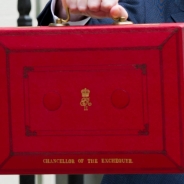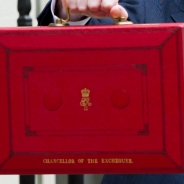04/04/2016, by Low Incomes Tax Reform Group, Tax article - General

From 1 April, workers on the National Minimum Wage, who are aged 25 and over, are entitled to a 50p per hour increase in their wage – the ‘National Living Wage’.
Introduction
According to Treasury figures, millions of workers are set to benefit from the National Living Wage. Here LITRG tries to help workers understand the rules so that they are better placed to self-check their position and secure their rights. You can read more about all the items covered here by following the ... Continue Reading
04/04/2016, by Lee Sharpe, Tax article - Business Tax

Set out below are the main marginal rates of net income, with background calculation. Marginal tax rates are also included (or marginal tax+NIC rates, as appropriate)
The higher the net yield percentage, the more income the individual will ultimately receive.The higher the net yield, the lower the effective marginal rate - the marginal tax rate will be the difference between 100% and the net yield after tax. For those struggling with the marginal tax (and NIC) rates for bonuses, try adding 13.8%/1.138 ... Continue Reading
04/04/2016, by Tax Insider, Tax tip - Property Tax

If a supply is not zero-rated or exempt then by default it will be a standard rate (20%) supply. The main difference between zero-rated and exempt supplies is that a business registered for VAT may reclaim/recover all input tax incurred on a zero-rated supply but no VAT can be reclaimed on exempt supplies.The one exception to this general rule is with regard to land and property. VAT at a reduced rate of 5% applies to the following types of renovation:Conversions of non-residential building into ... Continue Reading
01/04/2016, by Tax Insider, Tax tip - Business Tax

If you are a sole trader or in partnership and you use a car, motor cycle or goods vehicle for the purposes of your trade, you can claim a deduction for the costs incurred in doing so. To save work and remove the need to keep detailed records of actual costs incurred, under the simplified expenses rules a statutory deduction can be claimed by reference to a fixed rate per mile.
For 2015/16, the appropriate mileage rate for cars and vans is 45p per mile for the first 10,000 business miles and 25p ... Continue Reading
30/03/2016, by Tax Insider, Tax tip - General Tax

Surprisingly, many people still die intestate (i.e. without a will).With the ease that wills can now be drafted and the low cost of such services, it makes good sense to make a will and can save a lot of needless heartache and stress for those left behind, not to mention saving a lot of tax.A simple will gifting all your worldly goods to your spouse or civil partner will avoid IHT on your entire estate, as gifts between spouses/civil partners are exempt from IHT.Remember, if the nil rate band is ... Continue Reading
25/03/2016, by Low Incomes Tax Reform Group, Tax article - Income Tax

LITRG reminds individuals who give to charity under Gift Aid to check that they will still pay enough tax in 2016/17 to cover the amount of tax to be reclaimed.
Background
The Low Incomes Tax Reform Group (LITRG) has issued advice ahead of the new tax year to explain how changes to the tax system will impact on Gift Aid donations – which could leave non-taxpaying donors with an unexpected tax bill.
The Gift Aid scheme
The way in which the Gift Aid scheme works is that the donor effectively ... Continue Reading
23/03/2016, by Tax Insider, Tax tip - General Tax

Employers are able to claim an employment allowance which reduces the amount of secondary employer’s NIC that they pay. For 2015/16 the allowance is set at £2,000 and is available to most employers, including one-man companies. However, it should be noted that while the allowance is to be increased to £3,000 for 2016/17, it will no longer be available to companies where the director is the sole employee. In a company where the allowance would otherwise be wasted it is possible to ... Continue Reading
21/03/2016, by Tax Insider, Tax tip - Property Tax

The capital gains tax rules on gifts between spouses as being at ‘no gain/no loss’ apply until the end of the tax year of separation. Ideally therefore, the transfer of any jointly held assets should be made some time before the end of the tax year in which separation took place in order to be fully exempt. The asset (which could include the main residence) will be valued as at the date of the gift rather than the 50% share of the original cost. Thus an ‘uplift’ in the value ... Continue Reading
21/03/2016, by Pinsent Masons, Tax article - Budgets and Autumn Statements

A review of the government's plans for business taxation over the next five years and beyond, by Heather Self and Eloise Walker of Pinsent Masons
The Budget saw the long awaited publication of the 'business tax road map' which is supposed to give us an indication of the government's plans for future tax policy to 2020 "and beyond" (although the beyond bit must depend upon the result of the next general election).
Back in 2010, the Coalition government published the 'corporate tax road map' which ... Continue Reading
21/03/2016, by Lee Sharpe, Tax article - Budgets and Autumn Statements

TW Ed has to face some uncomfortable truths in the 2016 Budget
I am not particularly impressed by this Budget. Rather, I am particularly unimpressed. Regular sufferers readers may already suspect why.
There are some good parts. And some of the less good parts are, if not welcome, at least understandable. They are overshadowed. Please note that this article will concentrate on the tax aspects of the Budget, as one might expect. Firstly, housekeeping:
(i) Tweaks to the new Personal Savings Allowance ... Continue Reading




